Bee Healthy in the Hot Summer
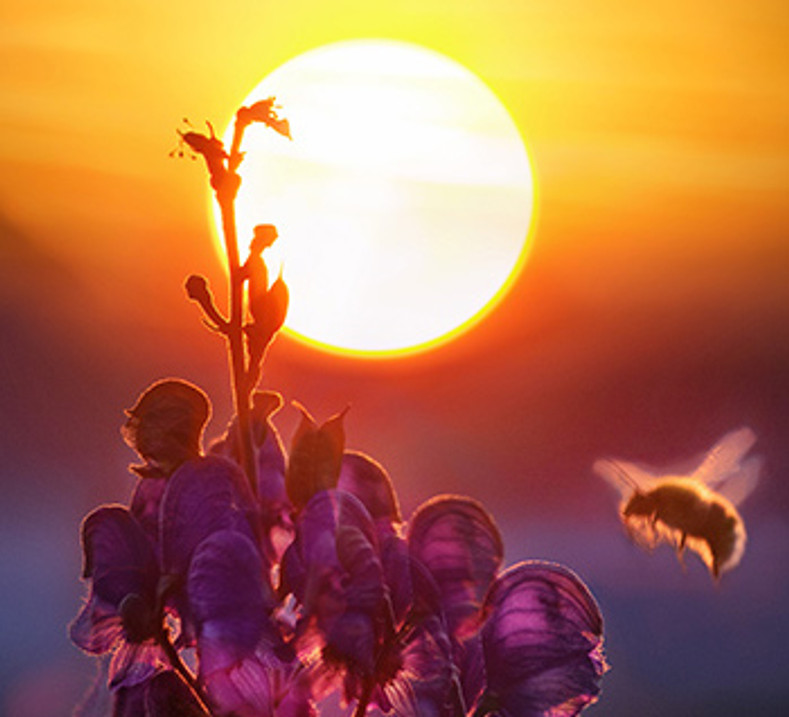
Remember when you were young, when you tolerated--even thrived in--hot summer weather? If you're miserable in summer it may be that your body is losing the ability to adapt. This intolerance is a likely sign that you have inflammation-causing toxins in your body, which can result in conditions such as high blood pressure, heart trouble, headaches and fluid retention.
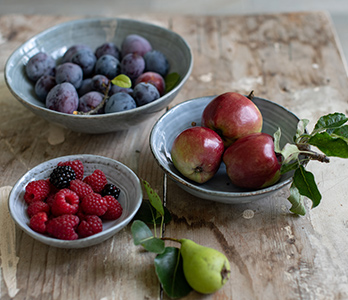
Seasonal fruits and vegetables grown in your locality assist your body in discharging heat. The minerals potassium, magnesium and food-form sodium are typically lost during the summer months through perspiration and more frequent urination.
(For foods highest in potassium, sodium & magnesium, see the links at the bottom of the blog).
Steadily building mineral reserves throughout the summer provides a firm foundation of health when the windy, cooler weather of autumn rolls in. If mineral reserves aren’t built and maintained, decreasing daylight & the cold, damp weather of autumn and winter can compromise your physical, mental and emotional wellbeing.
Writing about seasonal vegetables and fruits inevitably brings to mind our friends the bees. We humans need to do everything possible to protect these tireless workers; in fact, our very existence depends on them! Here’s a few facts about bees:
There are 20,000 known bee species in the world, and 4,000 of them are native to the United States.
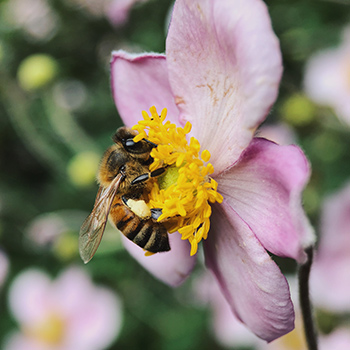 Bees, particularly honeybees, have
been around for millions of years. They are responsible for pollinating over a
third of our food supply and 90% of wild plants.
Bees, particularly honeybees, have
been around for millions of years. They are responsible for pollinating over a
third of our food supply and 90% of wild plants.
The honeybee is so essential to crop pollination that some farmers “rent” them—or ship them in—to pollinate crops in the spring.
Bees are crucial not only for human survival, but also for the functioning of entire ecosystems. Pollination of plants allows the plant to reproduce; then the plants contribute to feeding mammals, birds and insects, which in turn adds to the food systems for humans.
Bees benefit biodiversity. In addition to pollinating food crops, bees contribute greatly to the plants that beautify gardens & landscapes, control soil erosion, and enrich the soil. Biodiversity in natural systems is essential to the health of every ecosystem. (This includes, by the way, all human systems!)
Fruit & nut trees are dependent on bee pollination for the production of the tree’s food; nuts and fruits are food for countless species of wildlife. Trees are “the lungs” of the earth, and without pollination by bees, our oxygen supply would dwindle.
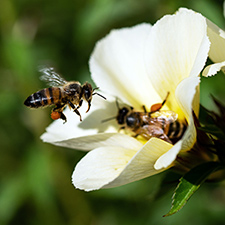
A FEW THINGS YOU CAN DO TO HELP THE BEES
- Support organic farmers who rotate crops and don’t use dangerous, bee-harming pesticides;
- Support local beekeepers by buying their honey and other natural bee products;
- DO NOT USE TOXIC PESTICIDES on your home gardens, lawn or trees, and only use natural, non-toxic sprays for insect control;
- If purchasing plants from a greenhouse or home improvement store, buy organic whenever possible.
Most bees are not aggressive, especially bumblebees & honeybees. So let them bee as they travel around doing their important work. Enjoy the soothing buzzing—it harmonizes brain centers!
To harmonize our body’s energetic pathways, called meridians, we must keep our lifeforce flowing. If the pathways are clogged or blocked, subtle life-energy becomes deficient.
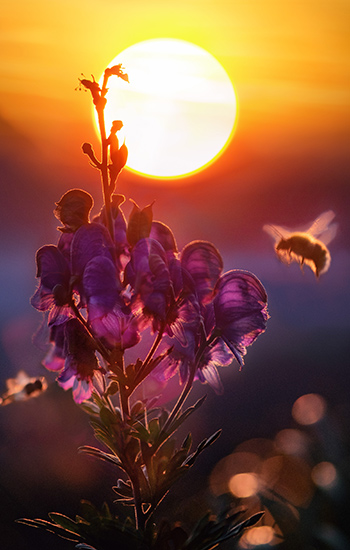
Here’s a daily menu to help keep the energy pathways clear of toxins, bodily wastes, negative emotions & thoughts: eat approximately 75% vegetables and fruits with 25% high carbohydrate and high protein foods. For more on this, click here.
Significantly reducing mammal meats and increasing vegetables helps to reduce inflammation and eliminate the problematic wastes and toxins. Eating a high percentage of fresh, locally grown vegetables and a few local, ripe fruits supports this cleansing process, and replaces acidic wastes & toxins with mineral-rich nutrients!
If you have a body type that tolerates heat well, but you dread the coming winter chill, be proactive with your diet and supplements in summer to reap the rewards in autumn & winter. Mineral-rich herbs of summertime, such as fresh parsley, watercress, dulse seaweed, basil & rosemary build deep reserves and help alkalize your tissues. When cells are depleted of life-giving elements, healthy metabolism is compromised; but when our cells have the vital minerals they need, energy production is normalized. Our body can then maintain a comfortable temperature.
In day-to-day living, it's not what you do once a week that pays off, it's what you do all the rest of the time.
LINKS


